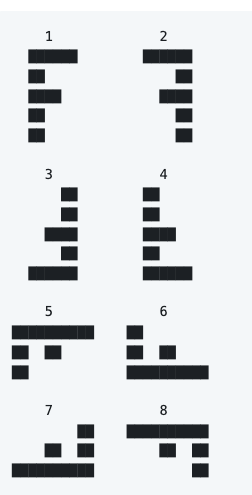0. 작성하게 된이유
- AI로 이미지를 보냈는데…? 이미지가 돌아가서 왔다…
- 이미지에는 여러가지의 정보가 들어있구나..
TL;DR
- 모바일(or 디지털 카메라)로 찍은 이미지는 여러 Meta(촬영 일시 및 시간)정보가 들어있다.
Orientation값으로 인해 이미지가 돌아가는것이다.
- 이미지 MetaData를 바꿔주자
blueimp-load-image이용하여 MetaData를 수정할 경우, Image 손실이 크다(약 50%이상)- File → Blob → File 같은 Flow Image 손실 적게 MetaData를 Reset 할 수 있다.
1. 이미지 Exif 정보란?
-
정의 : Exif는 "Exchangeable Image File Format"의 약자로, 디지털 카메라와 다른 디지털 이미지 캡처 장치에서 이미지와 함께 추가 정보를 저장하기 위해 사용되는 표준 형식
-
Exif의 정보
- 촬영 일시 및 시간
- 카메라 모델 및 제조사
- 렌즈 정보
- 노출 시간 및 조리개 값
- 촬영 모드 (자동, 수동 등)
- 화이트 밸런스 설정
- GPS 위치 정보
- 이미지 해상도 및 크기
-
문제의 Exif - orientation- 사진을 어떻게 찍던 모바일에서는 찰떡같이 바로 보여준다.
- 이미지를 업로드하면, S3/Image 서버는 아래의 정보를 읽어서 이미지를 저장하는것같다…?

2. 이미지 Exif(Orientation)를 수정하자
-
이미지 MetaData데이터를 읽기 위해서는 라이브러리(
blueimp-load-image)를 이용하자 -
문제의 이미지 Exif 정보 (274 = Orientationn 정보)

-
코드
let file = e.target.files[0]; loadImage( file, function (img, data) { if (data.imageHead && data.exif) { // Orientation 정보를 Reset loadImage.writeExifData(data.imageHead, data, 'Orientation', 1) img.toBlob(function (blob) { loadImage.replaceHead(blob, data.imageHead, function (newBlob) { // newBlob(Orientation 정보 reset) }) }, 'image/jpeg', 1 // 이미지 Quality) } }, { meta: true, orientation: true } )
3. Exif 메타정보가 변경된 이미지는 화질이 너무 떨어진다
- 이미지 손실(2.7MB → 968KB)이 너무 심각해서.. 이미지를 다루는 서비스에서는 사용하기 어렵다.
- 간단한 프로필 이미지같은 경우에는 충분히 사용가능
4. Meta 정보가 필요없다면, Reset
-
이미지 Meta정보가 필요없다면, 아래와 같이 변경 할 수 도 있다.
-
File → Blob → File로 변경하면 손실 없이 Meta정보를 변경(Reset)할 수 도 있다.
export const convertToNewFile = (file: File) => { return new Promise((resolve, reject) => { const reader = new FileReader(); const image = new Image(); const handleError = (error: unknown) => { reject(error); }; const handleBlob: BlobCallback = (blob) => { if (!blob) return resolve(file); const newFile = new File([blob], file.name, { type: blob.type }); resolve(newFile); }; const handleLoad = () => { const canvas = document.createElement("canvas"); const ctx = canvas.getContext("2d")!; canvas.width = image.width; canvas.height = image.height; ctx.drawImage(image, 0, 0); canvas.toBlob(handleBlob, file.type, 1); }; reader.addEventListener("load", (event) => { image.addEventListener("load", handleLoad); image.addEventListener("error", handleError); image.src = event.target!.result as string; }); reader.addEventListener("error", handleError); reader.readAsDataURL(file); }); };